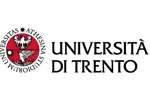

| The award | How you will study | Study duration | Course start | Domestic course fees | International course fees |
|---|---|---|---|---|---|
| MSc | Full-time | 2 years | September | - | EUR 2959 per year |
The Master's course in Cognitive Science leads to the Master's degree in Cognitive Science (laurea magistrale), whose aim is to provide students with advanced theoretical and methodological knowledge in cognitive neuroscience and computational linguistics through an interdisciplinary approach to the study of the mind-brain system. Two characteristic features of this programme are: a close relationship between teaching and research practices, and a constant interplay between biology-based and technology-based explorations of the human mind and brain and of human ability to communicate through natural language.
The programme consists of one track in Cognitive Neuroscience (CN) and one in Language and Multimodal Interaction (LMI). The CN track The programme combines courses in cognitive neuroscience, neurobiology, statistics and experimental methodology, computer programming, advanced signal and data analysis with hands-on training in cutting-edge researchbrain imaging and brain stimulation techniques. The LMI track combines introductory computer science courses with courses on formal linguistics at various levels and provide students with an overview of well-established computational linguistics topics as well of research topics dominating the field nowadays. It also offers courses on language and the brain.
The programme provides research-focused training with a varied, international group of faculty and researchers. All students are actively involved in developing research projects and have access to the laboratories during the Master's course, thus gaining invaluable hands-on experience with the latestcutting-edge research technologies. These include functional magnetic resonance imaging (fMRI), transcranial magnetic stimulation (TMS), magnetic encephalography (MEG), transcranial direct current stimulation (tDCS), electroencephalography (EEG), eye tracking, cinematic motion tracking, psychophysics, computational modeling, & comparative cognition (animal models). The knowledge and skills gained during the Master's course will most of all provide a foundation for advanced scientific research, but also prepare for professional applications in more applied setting.
The master is part of a joint program with the Scuola Internazionale Superiore di Studi Avanzati di Trieste (SISSA) and of the Erasmus Mundus Program in Language and Communication Technologies. It supports student exchanges with various EU prestigious universities in the CN and LMI field.
For EEA students the fee amount ranges from 0 to 2.959 euros, according to the student's family economic condition. For non-EEA students the fee amount ranges from 0 to 4.500 euros according to the student's performance (for top scored admitted candidates fees are waived).
A basic knowledge of programming, math and statistics is required. English at B2 level.
Below are some suggested courses at other providers that you may also be interested in:
Foundation Program in Business Foundation Degree, Foundation Degree
GBSB Global Business School
Find out moreIf you do not meet the entry requirements for this course then consider one of these postgraduate preparation courses from another institution:
There are 19 other courses listed from University of Trento. A selection of these are displayed below:
Join the Сưłć´«Ă˝ email list and never miss a chance to turn your study abroad dreams into reality!

Find out more about studying in Italy